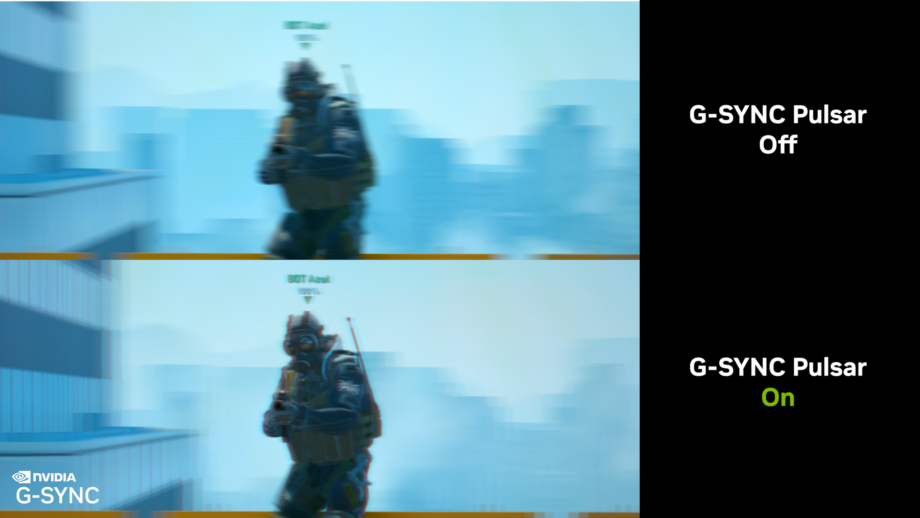What is G-Sync Pulsar? Nvidia’s new VRR upgrade explained

During CES 2024, Nvidia revealed a trifecta of new “SUPER” graphics cards but that wasn’t its full suite of new products. It showed off Nvidia G-Sync Pulsar, a new technology that reduces motion blur while offering a smooth variable refresh rate. Here’s our simple guide.
Nvidia has attempted to effectively tackle motion blur before, with Ultra Low Motion Blur (ULMB) being its previous high-profile offering. But, such technology meant you had to make a sacrifice for a smooth variable refresh rate.
With G-Sync Pulsar, Nvidia is bringing together a few initiatives to offer one all-encompassing motion blur-beating feature. Read on for the full details.
What is G-Sync Pulsar?
According to Nvidia, G-Sync Pulsar is the “next evolution in Variable Refresh Rate (VRR) technology”. The goal of the new feature is to tackle motion blur alongside a stutter-free experience. G-Sync Pulsar is set to provide over 1000Hz of motion clarity.

Apple TV+
The Home of Apple Originals. Enjoy star-studded, award-winning series, films, and more. Grab your 7 day free trial now.
- Apple
- 7 day free trial
- £6.99 p/m
Nvidia previously attempted to significantly reduce motion blur with its ULMB technology but that inhibited the stutter-free experience that serious gamers crave. Now, G-Sync Pulsar marks a combination of various Nvidia solutions aimed at tackling this problem.
Nvidia uses Variable Overdrive to combat the smearing effect caused by slow pixel transitions but this doesn’t prevent motion blur caused by something called “object permeance”. Nvidia dealt with this issue by strobing the backlight of displays but this brings about another issue, which is flickering.
Enter G-Sync Pulsar. Nvidia says it has found a combined solution to all these issues involving using an algorithm to dynamically adjust how the backlight strobing works, adjusting in line with varying refresh rates. This should stop blur, stutter and flicker.
Alongside the launch, Nvidia revealed the Asus ROG Swift PG27 would be the first monitor to support the new Pulsar technology. As G-Sync Pulsar requires a G-Sync chip onboard, you’ll need a G-Sync Ultimate monitor to use it.







